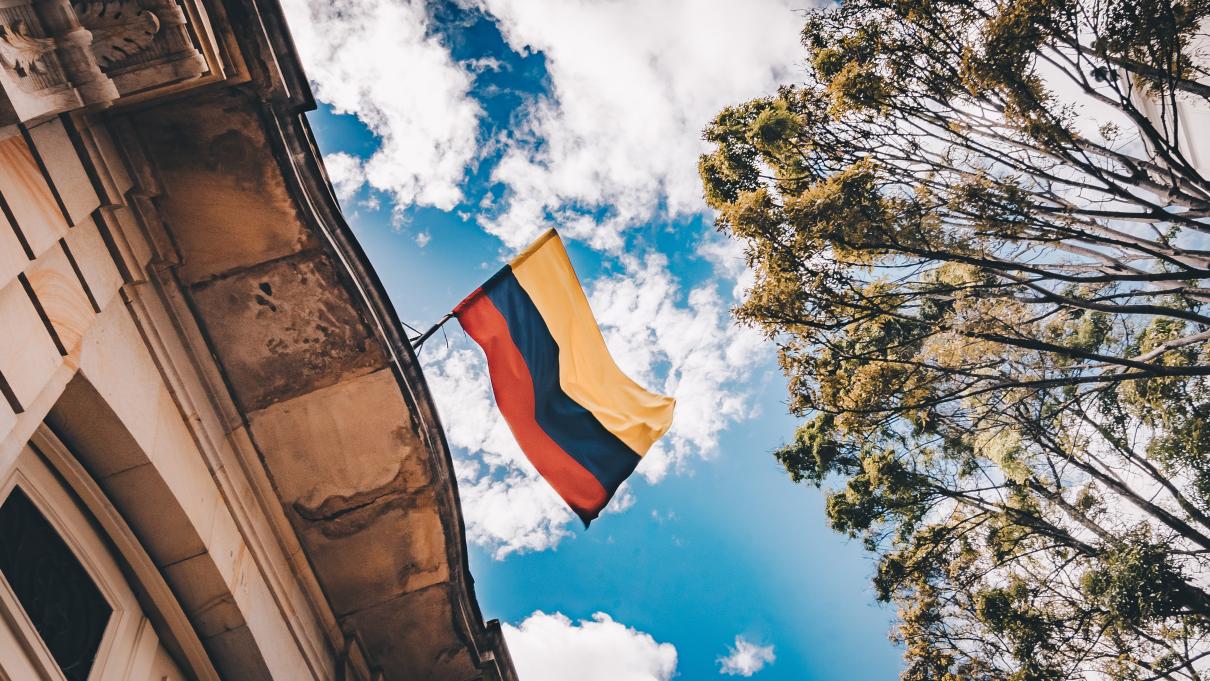
Since the sixth IPCC report on climate change was issued, there have been a lot of words in the media trying to make it more and more evident that it is necessary to take action. Quickly. The key changes that must take place to increase the chances of mitigating climate catastrophes were explained as well as the scenarios of keeping business as usual. One important thing to keep in mind is that the populations that will suffer the consequences the most are not necessarily the most responsible for changing their habits. Colombia, for instance, is not one of the key culprits of greenhouse gases emissions (Cripa, Monica; et al. 2021), yet, it is evident that the country is very vulnerable to climate change (Côté, Marjolaine; et al., 2010).
Colombia has been described as "at high risk" from climate impacts due to many conditions, such as troubles with water resources, coasts being threatened by sea levels rising, climatic emergencies becoming more frequent, to name a few. It is a reality that many people suffer from the scarcity of fresh water in Colombia. The effects of climate change could aggravate this even further, making it more difficult to guarantee the resource for the endangered populations and, most likely, extend the territory’s water stress. The danger of floods from rising water levels, which might be around a meter by the end of the century if emissions are low worldwide (Lindsey, Rebecca; 2021), could be a threat to many economic activities, as well as critical human settlements. This means the relocation of harmed populations could be a soon to come reality and could further aggravate fresh water scarcity (Côté, Marjolaine; et.al, 2010).
One issue that has historically troubled Colombia is internal migration. Since many injustices exist and have done so for a long time, big populations tend to leave their homelands and search for better opportunities somewhere else; more often than not, this is done unwillingly. The measurements done by DANE (National statistics administrative department) prove how significantly the populations move from minor cities into bigger ones (Dane, 2005). This situation is a reality in 2021, meaning that if life opportunities are reduced due to climate change, internal migration will most likely rise (Côté, Marjolaine; et al., 2010). Such an event will mean further complications for the ones who are not directly affected by climate change.
The scenario is uneven since existing segregation, discrimination, and violence accentuate the opportunities gap between privileged and unprivileged populations. On top of the existing scenario, aggravating the climate-related events will most likely exacerbate the reduced opportunities for the most unprivileged. Even though the scenario is less dramatic for the privileged portion of the society, it will still come with many difficulties. To a city like Bogotá, the third worst in terms of traffic according to Tomtom's ranking, massive internal migration would only do a disservice to the residents in terms of commuting. If economic activities are threatened, the monetary scenario would be troubled, but the national insecurity would also increase. Covid-19 recession meant a 65% increase in firearm robbery since 2019 in Bogotá (Gutiérrez, Armando; 2021). This means that the scarcity of opportunities, decrease in overall health, food, water, and general wellbeing that may come with climate change are most likely guaranteed to increase the already rising levels of insecurity.
For a historically violent country with loads of social challenges, facing the consequences of a climatic disaster would represent a massive challenge for overall wellbeing. Colombia must be part of the change even if its role in carbon emissions is not as significant as other countries. It is a responsibility that even the most privileged should consider necessary to mitigate many unwanted scenarios. Personal habits and structural changes must be part of the usual narrative, even in a country that has relatively low emissions. The fact is that there is a chance to reduce the suffering that may come, and everyone can at least contribute to the reduction of harm in a small way. Hopefully, the motivation could grow into the international scenario, and responsibility could be found in the key places to tackle climate change. Colombia and its people should be part of the changes necessary, and this way, we could all be doing something for the wellbeing of all of us Colombians. Privileged or not, there is always something that can be done or something that can be said.
References
Crippa, Monica; et al. (2021): EDGAR v6.0 Greenhouse Gas Emissions. European Commission, Joint Research Centre (JRC) [Dataset] PID: http://data.europa.eu/89h/97a67d67-c62e-4826-b873-9d972c4f670b
Côté, Marjolaine; et.al, (January 10th 2010) "Mainstreaming Climate Change in Colombia" DANE (2005) "Migración Interna en Colombia a partir del Censo General 2005" Tomtom (2020) "Traffic Index 2020" https://www.tomtom.com/en_gb/traffic-index/ranking/
Gutiérrez, Armando (August 18th 2021) "La Inseguridad en Bogotá no da Tregua" taken from:
https://concejodebogota.gov.co/la-inseguridad-en-bogota-no-da-tregua/cbogota/2021-08-18/ 130620.php
More for you
Support Young Creators Like This One!
VoiceBox is a platform built to help young creators thrive. We believe that sharing thoughtful, high-quality content deserves pay even if your audience isn’t 100,000 strong.
But here's the thing: while you enjoy free content, our young contributors from all over the world are fairly compensated for their work. To keep this up, we need your help.
Will you join our community of supporters?
Your donation, no matter the size, makes a real difference. It allows us to:
- Compensate young creators for their work
- Maintain a safe, ad-free environment
- Continue providing high-quality, free content, including research reports and insights into youth issues
- Highlight youth voices and unique perspectives from cultures around the world
Your generosity fuels our mission! By supporting VoiceBox, you are directly supporting young people and showing that you value what they have to say.





